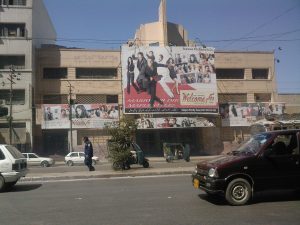The Pakistani film and drama industry has seen a massive change in the twenty-first century, despite being overshadowed by Bollywood, lousy scriptwriting, censorship, a lack of technology, and screen failures. Despite these shortcomings, young Pakistani actors have not only transformed the movie industry via their on-screen performances; in turn, the industry has also shaped how Pakistani society views the ills of the nation.
A significant change happened with the release of a controversial film, “Verna,” in 2017. Mahira Khan played the main protagonist, a rape survivor. The Center Board of Film Censors initially blocked the film’s release, citing its objectionable content, but later lifted the ban. Mahira Khan applauded the decision and dedicated the movie to Pakistan’s women and rape victims. Interestingly, the film’s release also coincided with the rise of the #MeToo movement in Pakistan.
“Verna” has challenged the Pakistani movie industry to focus on proper scripts that carry messages of social transformation, rather than simply churning out senseless big budget films.
Previously, Pakistani movies were more focused on catering to local viewers, but for the past few years, the movie industry has started trying to compete with its international counterparts. A new generation of actors has been the catalyst for this transformation; Pakistani movies and television series are now watched internationally on various platforms. Brilliant performances by young actors have forced filmmakers to contemplate making better films and not just rely on young actors’ performance. The ideas and tools for filmmaking in Pakistan are now not typically as “Eastern” as they once used to be; filmmakers and actors have been inspired by Hollywood and other regional film industries – and they have even gone one step further and challenged the nation’s controversial blasphemy law.
Before 2007, the story of almost every Pakistani movie would revolve around a rowdy young man and his affairs. The affairs would very commonly be limited to a tussle with an evil villain and romance with a damsel in distress. A famous actor of this era was Sultan Rahi. A movie that can very proficiently give a picture of this style is “Maula Jutt.” These sorts of films showed what people of that era wanted to see: a concoction of action, romance, and tragedy.
The actor Shaan Shahid has been an active part of the old as well as the new era. His movie “Majajan” presents him as a village hotshot with a story that includes most of the typical elements. Shahid is also a part of several movies of the modern era, such as with “Khuda Ke Liye,” “Waar,” and “Yalghaar.” None of these films fit the old script patterns, and include very different types of stories.
The young breed of Pakistani actors includes Ahad Raza Mir, Shehroz Sabzwari, Osman Khalid Butt, Bilal Khan, Ch Moazzam Ishaq, Feroze Khan, and Shahzad Sheikh, to name a few. All of them have made their presence felt in recent Pakistani films and drama serials. Television series made in Pakistan have always had multiple ideas and concepts. A distinct feature of the country’s film and television industry is that actors participate in both, unlike in other movie industries. There’s a belief in the Pakistani film industry that prominent TV stars can also work in films.
The emerging new trends are visible in Pakistan’s film industry. Pakistani filmmakers are trying to make movies that can live up to international standards of cinema. Partly as a result, many actors from Pakistan have worked for directors beyond the country’s borders, including Indian director Rahul Dholakia and Michael Winterbottom from England. The actors are trying to bring home what they can get from their international acting experiences. This has made its impact felt on local productions.
Since 2007, films have seemed relatively new, perhaps even “experimental,” to Pakistani audiences, but this has not stopped people from taking more interest in them. More Pakistanis now watch more movies than ever before. Films are released throughout the year and especially on public and national holidays. People of all ages are keen to go to a movie theater to watch as many Pakistani movies as they would see other, international, releases.
One problem with the film industry in Pakistan is scriptwriting. Ch Moazzam Ishaq, an aspiring actor and filmmaker says, “Our movie industry often disregards the importance of a good script and actors, and that reflects in the movies later. Most of our filmmakers still struggle with the movie’s plot and the decision to choose the perfect actor, and in the end, the audience leaves the movie hall confused and dissatisfied.”
In the past, films such as the 2015 rom-com “Halla Gulla,” despite being hits at the box office, are marred by terrible scriptwriting, lousy acting, and terrible character development.
These reasons also make it difficult for new actors who have no previous experience to get decent movie roles. However, young Pakistani actors have found ways to work in the film and television industry despite the various obstacles. Small roles in television programs, which often have better scripts, are seen as a gateway to fame and films. The industry lures young Pakistani actors who seek to emulate their peers who have gone on to become highly influential public figures. This hope keeps young aspiring Pakistani actors moving forward.
Arun Budhathoki is a Nepalese journalist, poet, and writer. He tweets at @arunbudhathoki
































